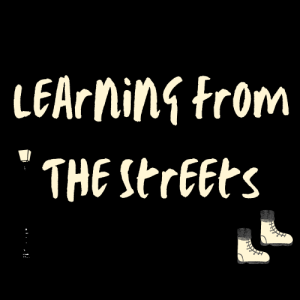Have you ever heard the following said?
The children need us, and we need them
Said by an individual about their own children? or maybe even by a youth worker or volunteer, who is about to, or hasn’t been able to do their ‘usual’ holiday club this summer.
Or what about the following:
We need you to do what you can so that we don’t collapse
This could be when members of one organisation or group project responsibility onto another one, it could be local branches of a national or regional group
I like to feel needed
It has taken me a while to write this blog.
I first encountered the term ‘Codependency’ as part of my own healing and therapy process, and the more discovered it, the more I wanted to read up a bit more on it before writing something. Christelle wrote about Codependency here, in this very honest, vulnerable blog, she referred to books by Melody Beattie, two of which I have now read and recommend.
One of the main problems with talking about Codependency is that the definitions do vary a bit.
But the main gist of all the definitions relates to the following. Having a personal identity that revolves around being needed by others, or meeting their needs. As Melody Beattie writes : “one fairly common denomination of every codependent was having a relationship personally or professionally with troubled, needy or dependant people” She writes about a second denominator too, and ive written more about that on my other blog, about ‘rules‘ that govern the codependent from a personal perspective. But lets keep this one professional shall we..
Melodys definition of Codependent is : ‘Someone who has let another persons behaviour affect him or her, and who is obsessed with controlling that persons behaviour’ (Codependent no more, p 34)
‘Codependency means.. that im a caretaker’ wrote one contributor to Melodys book, and that is just it. We have as a human race existed in communities and cared about each other, and gone further and given help when help wasn’t needed (so that the giver can feel better), and then there’s the whole thing about charity and co-dependancy/alleviating guilt..
How many youth workers do you know have thought or felt this? Maybe it’s you.
“I suspect co-dependants have historically attacked social justice and fought for the rights of the underdog, Codependants want to help. I suspect they have helped. but they probably died thinking that they didn’t do enough and were feeling guilty” (Thomas Wright in Codependancy, An emerging issue)
going on to say..
“It is natural to want to protect and help the people we care about. It is also natural to be affected by and react to the problems of people around us. As a problem becomes more serious and remains unresolved, we become more affected and react more intensely to it”
Friendly, trying to be helpful youth worker.. recognise yourself? Well I recognise myself first. Ive been known to pile in to the emotional shitstorm that others have got waiting, and try and help. I have been known to over think, over care for the drama in a young persons life. It was what I was good at, for at least. Reacting to people, young people who are destroying themselves, reacting by also destroying myself.
But what about you? Ever heard yourself get a high when you ‘helped a young person’ when actually they didnt need it, and the ‘solution’ was what you wanted, not them? Ever felt a high when you got drained listening? Or not slept because ‘your young person’s concerns are on your mind. If we’re trying to fix young people, then our young people consume us. They’re not ours to fix (thats codependency) and fixing them.. maybe thats for them to do..
I learned the hard way, that a path of empowerment meant that other people didnt make my decisions for me. As a youthwoker we maybe need to step into that space of empowerment again and realise what it means on an emotional level. Because what it does is help with distance, choice and autonomy.
Can you think of other ways in which you might show signs of codependancy? What about how your organisation/agency, relates to another? could funding be used to manipulate, breed a dependancy of skills or resources? Often in organisations there reactive aspects become codependent, and have at their helm unpredictable abusive narcissist leaders, sometimes sociopathic, those who dont stick to meeting agendas, cause diversions and division and who feel empty between the eyes, not so much empathy. So it may not just be you individually but also you collectively. When you see it, you see it everywhere.
So, if thats Co-dependancy, what about Inter-dependency?
The dictionary defines this as : ‘two or more things depending on each other’
This seems almost similar. But it isn’t is it. There is a big difference.
Its about power and equality. Interdependency is two or more things depending on each other, it is more mutual. It is give and take, or both giving, sharing, both recipient and receiver. Symbiosis might be a good term also, there is a mutuality.
Humans that are interdependent do not lose themselves in the other, they gain with the other, as both mutually share and give.
Interdependency is about a person having agency to make their own choices, fulfil their needs and hurts and use their gifts in a way that they choose to. Codepedency is when the ‘helper’ chooses all of this for them. Thats where codependency controls, even if from the purest of intentions.
If we’re working too many hours and working in a way that exhausts you because ‘your’ young people need you to be available all the time, then you might want to reflect on whether codependency is something you are being. The first step to dealing with it is to realise it. The second step is to start to create boundaries, after starting to love, and value yourself. Not just your time.
A codependent youth worker, is a burnout exhausted one. It is also one that will only damage young people even more.
If we can see young people as not in need of us – and as gifted, and that we seek to empower – not coercively control – and use language that maintains these things, then we can at least embed interdependence, agency and autonomy into our practice, and not feel like we are dependent on them to do the work, and make us happy as a result.
Codependency might be such an easy trap for us all to fall in, especially if were empathy on legs at times, and especially if ‘need’ is the dominant narrative around young people, and societies need to fix. We can become the superhero.
In the new normal, what can we do to change co-dependency tendencies in youth ministry – to empower young people to be interdependent?
If you’re interested in more on this, my next post looks at churches and whether they actively encourage codependancy.
Jean Vanier says this: founder of the L’Arche communities, has written,
“To love someone is not first of all to do things for them, but to reveal to them their beauty and value, to say to them through our attitude: ‘You are beautiful. You are important. I trust you. You can trust yourself.’ We all know well that we can do things for others and in the process crush them, making them feel that they are incapable of doing things by themselves. To love someone is to reveal to them their capacities for life, the light that is shining in them.”
References
Codependent no more – Melody Beattie 1986
Beyond Codependency – Melody Beattie 1989


Pingback: ‘Youth worker, heal thyself’ (Acknowledging how trauma affected my practice) – Learning from the Streets
Pingback: How did unhealed Trauma affect my Youthwork? – Learning from the Streets
Pingback: Youth Ministry Round Up #65 – Helping Youth Workers Build Successful Youth Ministries